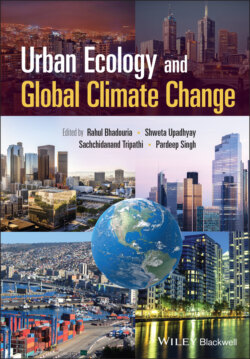Читать книгу Urban Ecology and Global Climate Change - Группа авторов - Страница 46
2.4.3 Why Is Urban Development a Challenge for Cardiometabolic Syndrome?
ОглавлениеHeart disease has quite a significant global impact. The disease has a huge financial impact on healthcare services of any country. The persistent existence of the condition imposes a significant financial burden on patients and it has a negative impact on their quality of life. This strain has a negative impact on treatment compliance and adherence, which leads to further problems. The overall cost of medical care escalated by ~50% between patients aged 31–40 years and for those aged 61–70 years (World Heart Federation 2015). The expense of cardiometabolic syndrome in the society is indeed likely to rise as in the developed world, where cardiometabolic syndrome impacts a large percentage of working‐age adults. In the long term, universal healthcare will face significant economic challenges as a result of rising general health costs, increasing maintenance costs, and a weak economy. If changes are not done, the pressure of cardiometabolic risk will fall on today's individuals and potential generations. Cardiometabolic syndrome harms people and children, inflicting physical signs of illness in low‐income countries. Because of late diagnosis and/or a lack of access to adequate care, many of these children die young. Many who recover can face a lifetime of disabilities as a result of a grossly mistreated disease. An infant who loses a parent does not only deal with the traumatic aftermath of their loss but also with the financial challenges of growing up in a one‐parent or no‐parent household. Kids may indeed be proposed to assist with physical labour or domestic tasks, or they may be forced out of education to serve at a young age. They will have to be responsible for a member of the family who's been hospitalised with CVD. Discrimination towards girls and boys may develop in education, as well as later on in life in respect of employment and wages and benefits, and in many nations, these are the principal determinants of capital stability. This prejudice may deter some communities from disclosing their child's medical conditions, creating an obstacle to medical care and treatment (Figure 2.4).
Figure 2.4 Societal stigma those are barriers to treat cardiometabolic syndrome.
